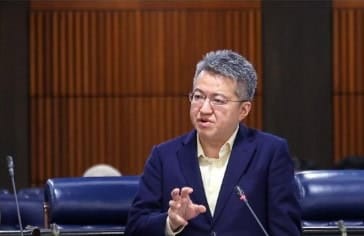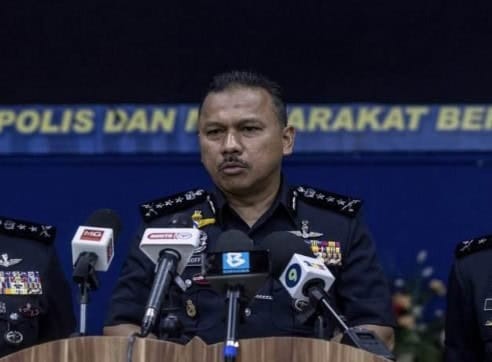
Moscow, March 26 — Russia will station tactical nuclear weapons in neighbouring Belarus, President Vladimir Putin said on Saturday, marking the first time since the mid-1990s that Moscow will have based such arms outside the country.
Putin made the announcement at a time of growing tensions with the West over the Ukraine war and as some Russian commentators speculate about possible nuclear strikes.
The United States – the world’s other nuclear superpower – reacted cautiously. A senior administration official noted Russia and Belarus had talked about such a deal over the past year, and said there were no signs Moscow planned to use its nuclear weapons.
“Tactical” nuclear weapons refer to those used for specific gains in the battlefield rather than those with the capacity to wipe out cities. It is unclear how many such weapons Russia has, given it is an area still shrouded in Cold War secrecy.
Experts told Reuters the development was significant, since Russia had until now been proud that unlike the United States, it did not deploy nuclear weapons outside its borders.
Putin told state television that Belarusian President Alexander Lukashenko had long raised the issue of stationing tactical nuclear weapons in his country.
“There is nothing unusual here either: firstly, the United States has been doing this for decades. They have long deployed their tactical nuclear weapons on the territory of their allied countries,” he said.

“We agreed that we will do the same – without violating our obligations, I emphasize, without violating our international obligations on the nonproliferation of nuclear weapons.”
The senior U.S. administration official noted Moscow and Minsk had been speaking about the transfer of nuclear weapons for some time.
“We have not seen any reason to adjust our own strategic nuclear posture nor any indications Russia is preparing to use a nuclear weapon. We remain committed to the collective defense of the NATO alliance,” the official said.
There was no immediate reaction from Lukashenko.
Putin did not specify when the weapons would be transferred to Belarus, which has borders with three NATO members – Poland, Lithuania and Latvia.
“This is part of Putin’s game to try to intimidate NATO … because there is no military utility from doing this in Belarus as Russia has so many of these weapons and forces inside Russia,” said Hans Kristensen, director of the nuclear information project at the Federation of American Scientists.
The International Campaign to Abolish Nuclear Weapons denounced what it called an extremely dangerous escalation.
“In the context of the war in Ukraine, the likelihood of miscalculation or misinterpretation is extremely high. Sharing nuclear weapons makes the situation much worse and risks catastrophic humanitarian consequences,” it said in a tweet.
Russia and Belarus have a close military relationship and Minsk allowed Moscow to use Belarusian territory to send troops into Ukraine last year. This January, the two nations stepped up joint military training.
Kyiv says it cannot rule out an attack from Belarus, but that there are not enough forces there for an offensive now and that Lukashenko would like his troops to stay out of the war despite pressure from Moscow.
As part of the deal announced by Putin, Russia will have completed the construction of a storage facility for tactical nuclear weapons in Belarus by July 1.
“We are not handing over (the weapons). And the U.S. does not hand (them) over to its allies. We’re basically doing the same thing they’ve been doing for a decade,” Putin said.
“They have allies in certain countries and they train … their crews. We are going to do the same thing.”
Russia has stationed 10 aircraft in Belarus capable of carrying tactical nuclear weapons, Putin said, adding that Moscow had already transferred to Belarus a number of Iskander tactical missile systems that can launch nuclear weapons.
“It’s a very significant move,” said Nikolai Sokol, a senior fellow at the Vienna Center for Disarmament and Non-Proliferation. “Russia had always been very proud that it had no nuclear weapons outside its territory. So, now, yes, they are changing that and it’s a big change.”
When the Soviet Union collapsed in 1991, nuclear weapons were deployed in the four newly-independent states of Russia, Ukraine, Belarus and Kazakhstan.
In May 1992, the four states agreed all the weapons should be based in Russia and the transfer of warheads from Ukraine, Belarus and Kazakhstan was completed in 1996.





More Stories
BN To Field MCA, PBRS Candidates In Sabah Polls – Ahmad Zahid
Erdogan Warns Israel Against Breaking Ceasefire Promises
Sabah Polls: Postal Vote Applications To Open From Oct 13 – EC